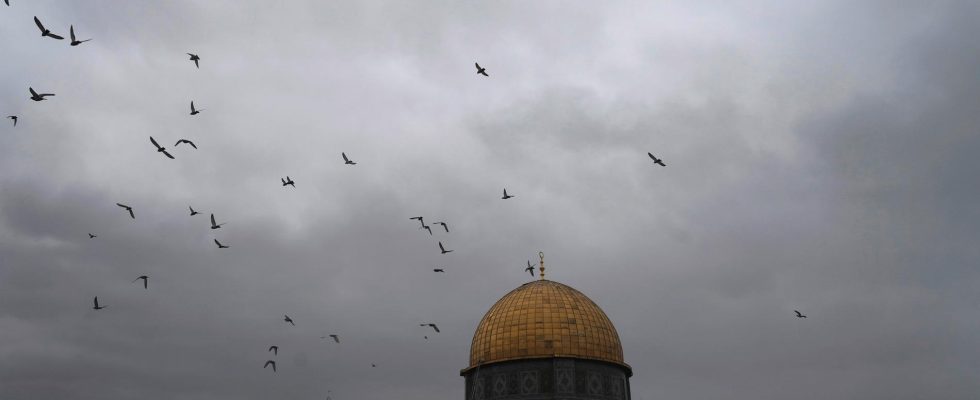Save the article
full screen
Next
The core of the conflict: the Dome of the Rock atop the Temple Mount, the center of the holy area in Jerusalem that neither side can imagine giving up.
1 / 2 Photo: Mahmud Illian/AP/TT
The conflict has many thousand-year-old roots, and broke out in its current form when Israel declared itself a new country in 1948.
Since then, several wars have been fought. Many attempts at mediation and peace between Israelis and Palestinians have been made over the years, but the quiet periods have never lasted long.
Here is the history of the conflict in brief.
What is the background?
The really short version is that two peoples want the same area of land.
It is based on the fact that Jewish and Arab peoples have lived in this region, in cities such as Gaza and Jerusalem, for millennia. Jerusalem early became a holy city. The Jewish temple there is mentioned in the Bible, and has given its name to the current Temple Mount. And in 632, the Muslim prophet Muhammad died in the same place, according to tradition on a rock where the Rock Mosque now stands.
In its current form, the game plan can be said to have been drawn up by the actions of the colonial power Great Britain around the First World War. In exchange for support, the British, including the legendary Lawrence of Arabia, promised that Arabs would be allowed to rule the area. At the same time, the Jews were promised “a home nation” in Palestine. So two conflicting promises.
.
The decisive role of World War II
Up until and during the Second World War, the British retained power in what was then called Mandate Palestine. But the Arabs showed increasingly violent dissatisfaction with colonial rule, and also with the Jewish minority’s growing role in society.
After the end of the war, the British wanted to leave the area, while the international community wanted to give the Jews a safe homeland after the Nazi genocide.
In 1947, the UN drew up a plan for Palestine in which the area was to be divided into a Jewish and an Arab state, with Jerusalem as an “international city” in between. The Jews said yes, the Arabs angrily no. But the plan was adopted by a large majority in the UN General Assembly.
.
Why have so many wars been fought?
On May 14, 1948, the yes of the Jews turned to the declaration of Israel’s independence. The neighboring Arab countries then joined the violent resistance of the Palestinians, which meant a major war. However, the Israelis had prepared well, and were able to conquer more territory than what was in the UN plan. Over 700,000 Palestinians fled homes they often had for generations and still live today as refugees in Gaza, among other places.
In the following decades, several wars are fought between Israel and the Arab states. The most decisive was perhaps Israel’s great victory in the Six-Day War in 1967. Israel then, among other things, subjugated large parts of the West Bank, areas that would have been decisive for a Palestinian state in the event of a peace settlement. Now 700,000 Israelis live in mostly newly built settlements there.
.
Who are the contenders?
It is the hard-line Islamist Hamas that has now attacked Israel. Hamas has roots in the Muslim Brotherhood, and support from Iran and Turkey. The organization has an armed branch, the al-Qassam Brigades, but as a whole is branded a terrorist by, among other things, both the EU and the US.
Since the organization took power in 2007, living conditions in Gaza have greatly deteriorated. It has also meant that there are now two Palestinian governments. A religious one in the Gaza Strip, and a more secular one in the West Bank with the Palestinian Authority, PA, under the leadership of President Mahmud Abbas. Although his term expired in 2009, he has remained in office as no elections have been held since 2006.
The extent to which Palestinian democracy prevails there is therefore highly questionable. Corruption is also widespread. At the same time, the Palestinian governments have their wings clipped by an often harsh Israeli occupation. All contact with the outside world is heavily regulated.
